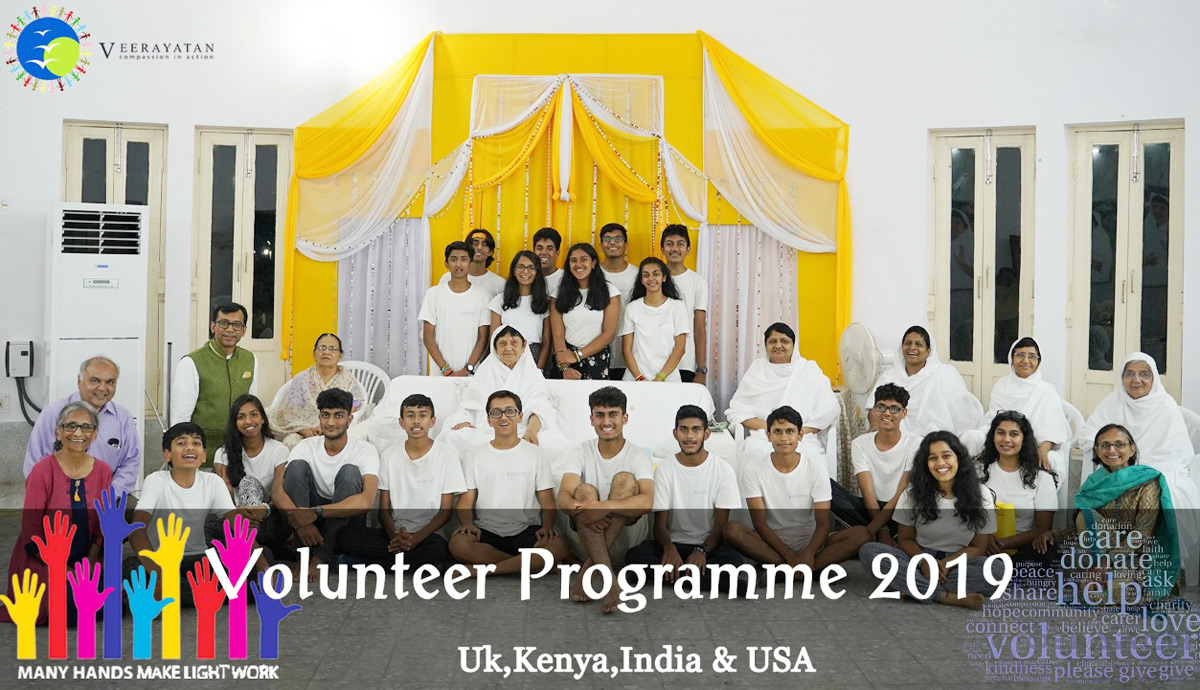You can’t spell ‘Career’ without ‘Care’!
reflections from a Volunteer at the Veerayatan Volunteering Programme 2019
No matter where we are in the world, healthcare professionals are always in demand. Many of them complete several years of intellectually challenging and emotionally strenuous degrees before they become qualified to practice. Aside from their obvious role, they also play a key part in producing resilient economies by keeping a nation’s workforce healthy.
In England, sick workers will be financially covered through Statutory Sick Pay (SSP), attain an undeniable excuse to stay away from work and, if they’re lucky, receive a ‘Get Well Soon’ card from a loved one.
In Bihar, sick workers… work. Many Bihari people live a hand-to-mouth existence, so a day off from their jobs leaves their basic needs un-catered for. Successive time off has a domino effect on both their physical and mental wellbeing. In this poorly affluent area, health issues such as cataracts or infected teeth are common due to their lifestyle and lack of appropriate hygiene education.
It is evident from the aforementioned points why healthcare professionals are valuable around the globe. It is thus not surprising that medical professionals as well as their co-workers in this sector have one of the highest prospective earnings. Yet, I was humbled when I came to find out that the doctors at Veerayatan work for a fraction of their salary potential.
There are places in India where a dentist could work to earn enough not only to support themselves, but generations after them. But, Dr Ankit, was content with his job at Veerayatan’s Dental Clinic. A typical day started at 9am and ended at 6pm. In that period, he would be attending to 2 patients in his surgery at any given time, performing procedures that some dentists may have not visited since their days at University! From follow up check-ups to tooth extractions, root canals to fillings; there was hardly time to sit down as patients would line up in the hundreds eager to be seen to.
Dr Ankit would be just as attentive with his last patient as he was with his first. His mindset was truly motivating. He was not phased out by the working environment, the number of patients he had to see or the type of cases that he encountered. The least of his worries was his remuneration which would have been perhaps just enough for him to get by the day and a little extra to save up. However, there was a sense of empathy that he could relate with each individual case. This intrinsic quality in a symbiotic relationship with his academic qualification and experience is what has enabled him to help the community.
A degree allows a person to gain expertise, build a network and develop a powerful skillset aligned to their chosen field. The technical knowhow obtained whilst studying at university can create an adequate employee. However, an exceptional employee, institutionally qualified or not, is one who has the innate passion about their niche subject. This was a key characteristic instilled in Veerayatan’s hospital staff and I believe it is this trait that will continue to drive their inspiring work ethic into the future.
Unfortunately, due to circumstances beyond their control, many of those with the capacity for a strong work ethic may not be able to put it into practice in their preferred occupation. We, on the other hand, are privileged enough to have the opportunity to pursue courses and careers in virtually any field we wish.
There are numerous philosophical, religious and scientific arguments suggesting why this may be. However, the harsh reality is, just pondering on social inequality has no practical benefit and will not better the situation of the disadvantaged. Instead, we should act. Being intellectually superior, humans have a moral obligation to care for all living things on Earth. We are self-conscious beings capable of understanding the weaknesses within our race and consequently should be able to create their solutions. We should strive to grasp opportunities that come our way. Aspirations to excel academically, spiritually or financially should be embraced, not only for personal gain, but to empower ourselves to help the less fortunate amongst us.
by Meer Shah, 20 years old

